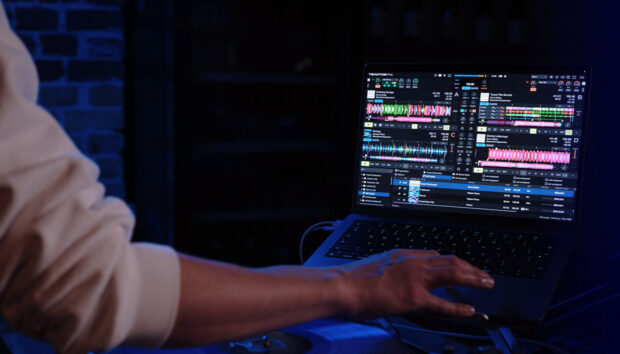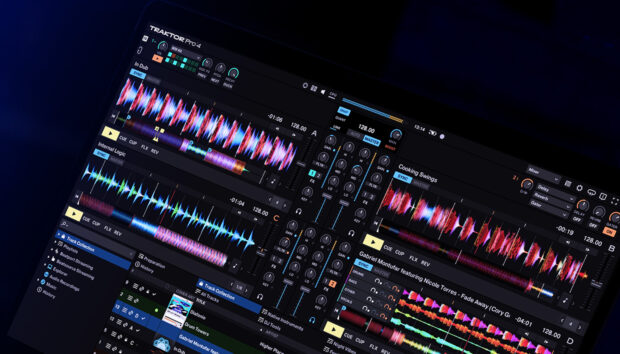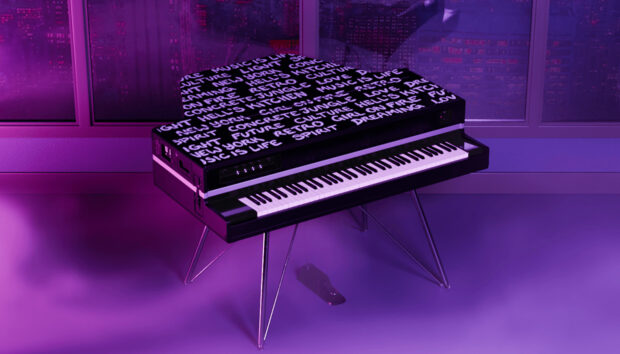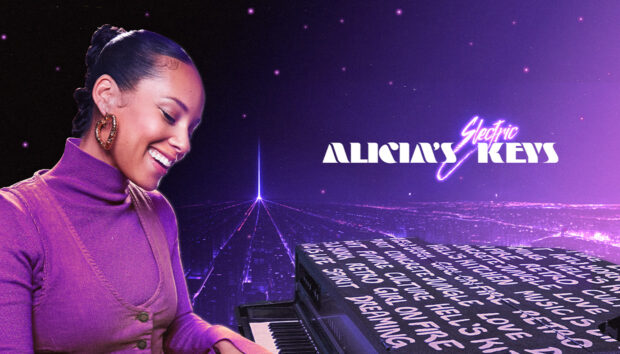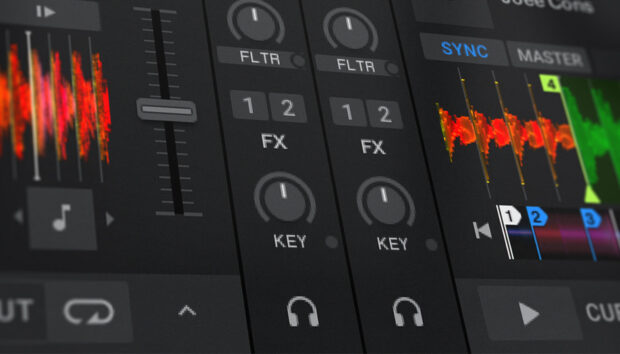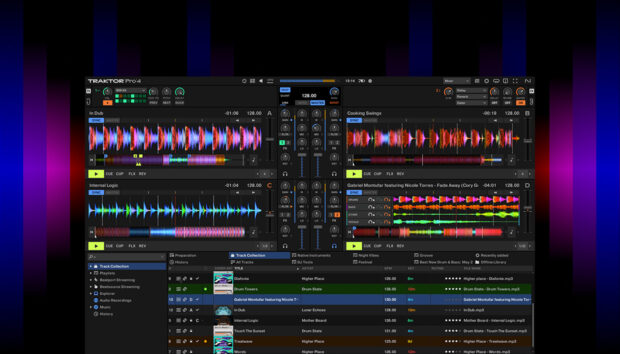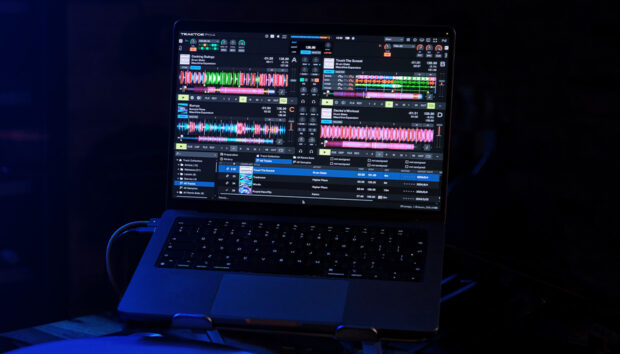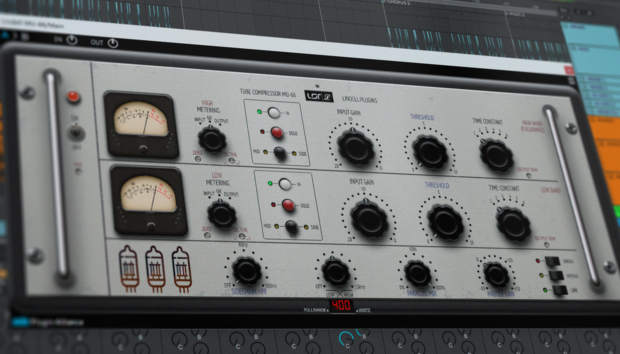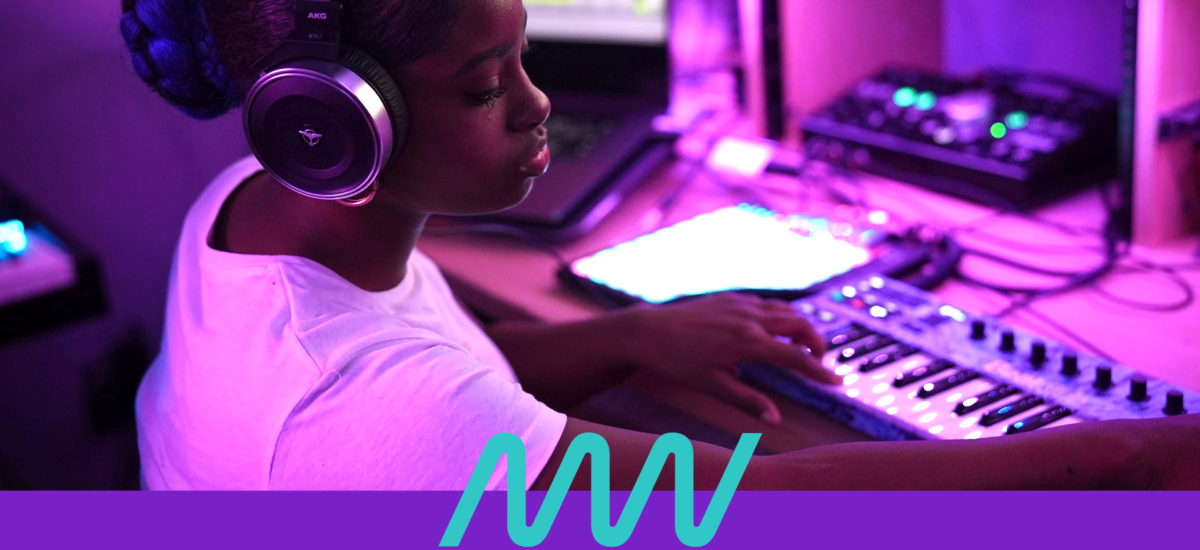
When producer, engineer, and singer Tiffany “Delilah” Miranda was coming up in the studio world in South Florida in the late ’90s and early 2000s she was told more than once that “girls don’t make beats.” Fast forward several decades, and Tiffany has made it her life mission to make sure girls who want to produce, audio engineer or DJ feel supported and confident, and have access to resources, knowledge, and mentorship. In 2011, she founded the non-profit organization Girls Make Beats, which provides female participants ages 5 through 17 with courses on production, audio engineering, and DJing, plus educational seminars and panels, summer camps, and real-world opportunities to break barriers in the music industry. Participants in the program have remixed Janet Jackson, had their music featuring in Coming 2 America, and produced music for a Ford TV spot, along with being mentored by the likes of Janelle Monaé, Angela Bassett, and Roc Nation’s Omar Grant.
There’s no question that there’s a lack of female representation in the music production world – according to a 2020 study by USC’s Annenberg Initiative, the ratio of men to women producers across 600 popular songs was 38 to 1. That’s why we’re proud to have teamed up with Girls Make Beats for our 2021 Community Drive initiative – a downloadable charity sound pack featuring over 150 kits, sounds, samples, and presets from SOFI TUKKER, !llmind, Wize, Zola Jesus, Jamie Lidell, Flohio, Telefon Tel Aviv, Saltyyyy V, Phase Fatale, The Pocket Queen, Miss Tahloulah May, Stichiz, and MEANGIRL, as well as the Girls Make Beats participants. The Community Drive 2021 pack is completely free – download it here. But we ask you to donate to Girls Make Beats if you’re able, and pass it on! Native Instruments is proud to have chipped in $30,000 to help Girls Make Beats expand their reach across the world, and pave the way for a more inclusive music landscape. (Scroll to the end of this piece for more info on scholarships.)
Recently Real Talk presenter Vivian Host sat down with Tiffany to discuss her long career in music, from singing hooks for Uncle Luke’s Luke Records in the ’90s to working in South Beach studios with the likes of Rick Ross, DJ Khaled, French Montana, and Cool and Dre. She revealed a bit more about her early studio experiences, which would eventually inspire the foundation and design of Girls Make Beats. An excerpt of their conversation is below.
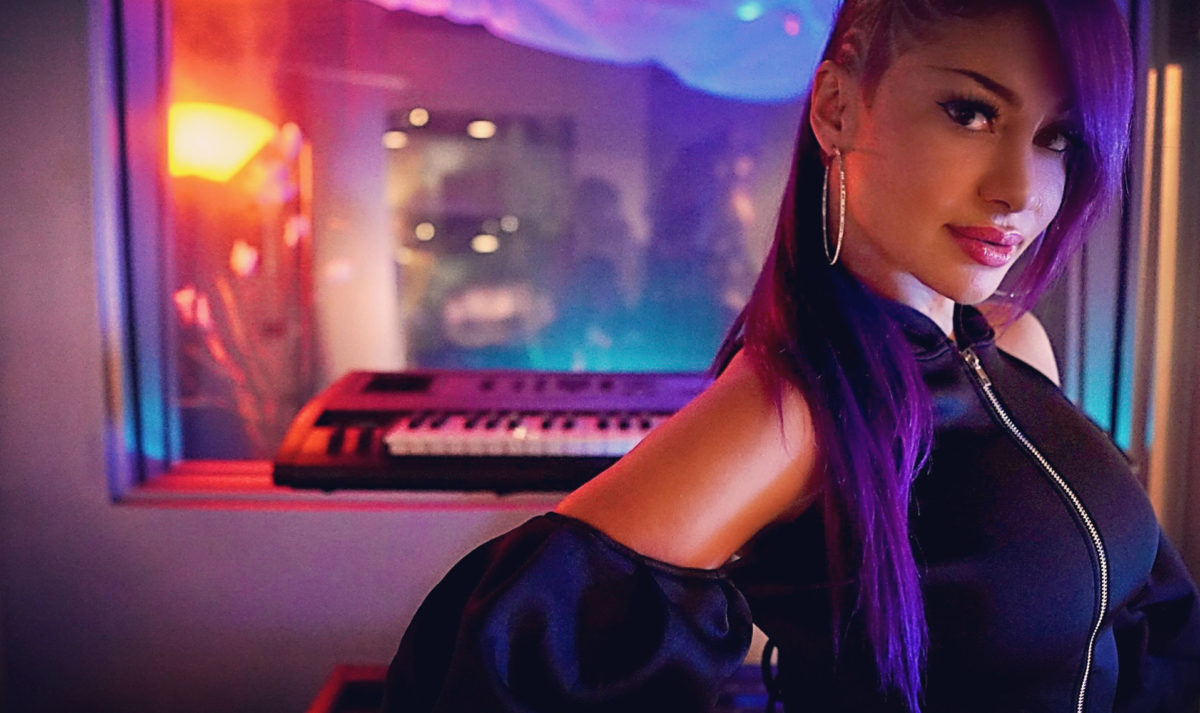
Girls Make Beats founder Tiffany “Delilah” Miranda
When you decided to shift from a career as a vocalist to producing and behind the boards, what was your support system like outside of your family? Did you feel welcomed or did it feel like people were not really keen on a woman engineering?
I actually received zero support. Funny to note is the reason I named it Girls Make Beats is that I literally had men in the studio telling me “Girls don’t make beats.” Like “Leave that to us. You’re wasting your time. That’s wack.” At the time, maybe my stuff was wack. I was literally starting to learn and there were no resources. I would take the bus to Barnes and Noble and read Pro Tools books and try to be a fly on the wall in studios ask a bunch of questions, but the atmosphere was not supportive and that’s why I’m so passionate about the work that we’re doing now at the organization – creating that safe space that really helps nurture young women to getting into these fields.
There are several kind of situations that I remember walking into as a young girl that really were like the pivotal points for me to want to create this space, I’ll share one with you. When I was 18 years old, there was a big producer who told me to come to the studio – he was working on one of the biggest recording studios in Miami at the time. And I was super excited to go meet with him. I had just put together a demo that I was very proud of – I produced all the music, mixed it, did basically everything from A to Z on it. I walked into the studio and he was in his big producer chair with all the guys he had working for him around. He played 20 seconds of, like, two of my songs and then stopped my demo abruptly and was like “This is no good. You need a producer and an engineer, this is what you need to sound like and what you need to be singing.” And then he played this song that was so raunchy, to the point where I was embarrassed to listen to it, and he was just like “This is what you need to be doing.” And he was controlling the room – like everybody in the room was at his command. So that was one of the monumental moments for me as a young woman in the recording studio where I was like, “This is not cool. This needs to change.”
Those type of instances drove me to learn as much as I could and really be the best and on top of my game. I went back to my home studio, continued to work at my craft. I started doing internships at recording studios, and again, was treated very unfairly. At my first internship, there were guys coming in after me, they were high and late, and because they were homeboys of the guy at the studio they could sit in on sessions. I remember just begging like, “Can I at least look at the SSL book while I’m sitting here at the desk making phone calls for you?” And even that was like “No you haven’t earned your stripes yet.” But I continued to be a fly on the wall at every recording session that I could be at, go to all of my friends’ sessions, and co-produce and engineer as much as I could.
Eventually, I was able to get my first kind of official start as an engineer at a recording studio called SoBe Swag Labs. The initial reaction of people walking into their session and seeing a woman behind the boards was interesting. Some people would see me and be like “So, where’s the engineer?” It was mind-blowing to them. I had gotten my Pro Tools certification through Avid and my skill was up to an optimal level to where, when I was in the recording studio, I was the fastest person in the room. So that gave me a lot of confidence and was an inspiring experience for me to get to that level.
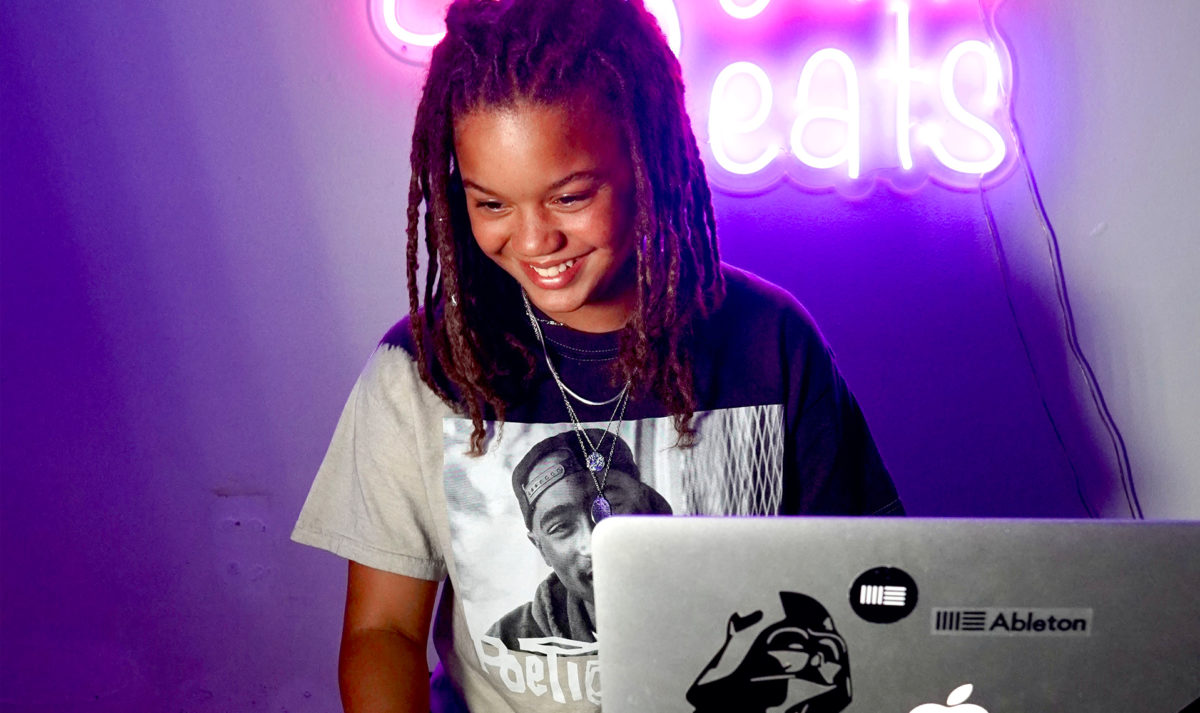
When and how did this idea of Girls Make Beats come to you and how did you design the program?
Girls Make Beats was really created parallel to my career and again, based on the experiences I had as a girl who does make beats. I’ve kind of created it in the in the vision of what I wish had existed for me, like a comfortable environment to learn these things. Back then, I was looking around the room at the studio and not seeing any other women like me – so creating a space where girls are exposed to this amazing field and encouraged and provided career opportunities.
My sister Christine Miranda is the co-founder of the organization and she’s also an attorney, so she helps get all the paperwork together. In the beginning, her and I invested in one laptop, one Traktor DJ controller, and one MIDI controller and we went around to career days at schools in Broward Country, Florida, which were held at like seven in the morning. We were passionate about exposing music tech to as many girls as possible and allowing them to really get their hands on it. We did little things to market to the young girls – like we would put pink and purple knobs on the controllers. And all of a sudden, the girls were more engaged and they wanted to play with it. And it was funny because the boys who were walking past wouldn’t touch the stuff, like “Oh, that toy is for girls.”
It really grew from the grassroots level, and I’ve poured everything I have into it. All of the relationships I’ve built over the years in the music industry have really helped the organization grow. Now when girls walk into a Girls Make Beats classroom, they have access to state-of-the-art equipment, lessons from music industry professionals… They’ve been able to accomplish a lot of things on their resume before they even turn 18. Some of our girls have done an official remix for Janet Jackson that she printed up on vinyl and performed; some have done a song for Nike Airmax day or a Ford commercial with Angela Bassett, as well as a music sync in the Coming 2 America movie.
What are some of the things that you’re hearing from the Girls Make Beats participants as far as obstacles they’ve come up against or why they feel more women are not involved in music production and engineering?
You’ve touched on representation and the lack of it – I think that is the huge initial obstacle because representation matters. When girls grow up and all they see is dolls and women in the kitchen then from the jump it kind of stifles the idea that they can be successful in these otherwise male-dominated careers. And because there aren’t a lot of women in the recording studios – and this is going back to thinking about my 15-year-old self – maybe other young women coming up don’t initially have that confidence to speak up and say, “Hey, no, this sound doesn’t really fit me” or “Actually, that 808 needs to hit a little harder” or “The tempo needs to go up a bit.” The confidence is also a huge obstacle our organization tackles through representation and creative a safe environment.
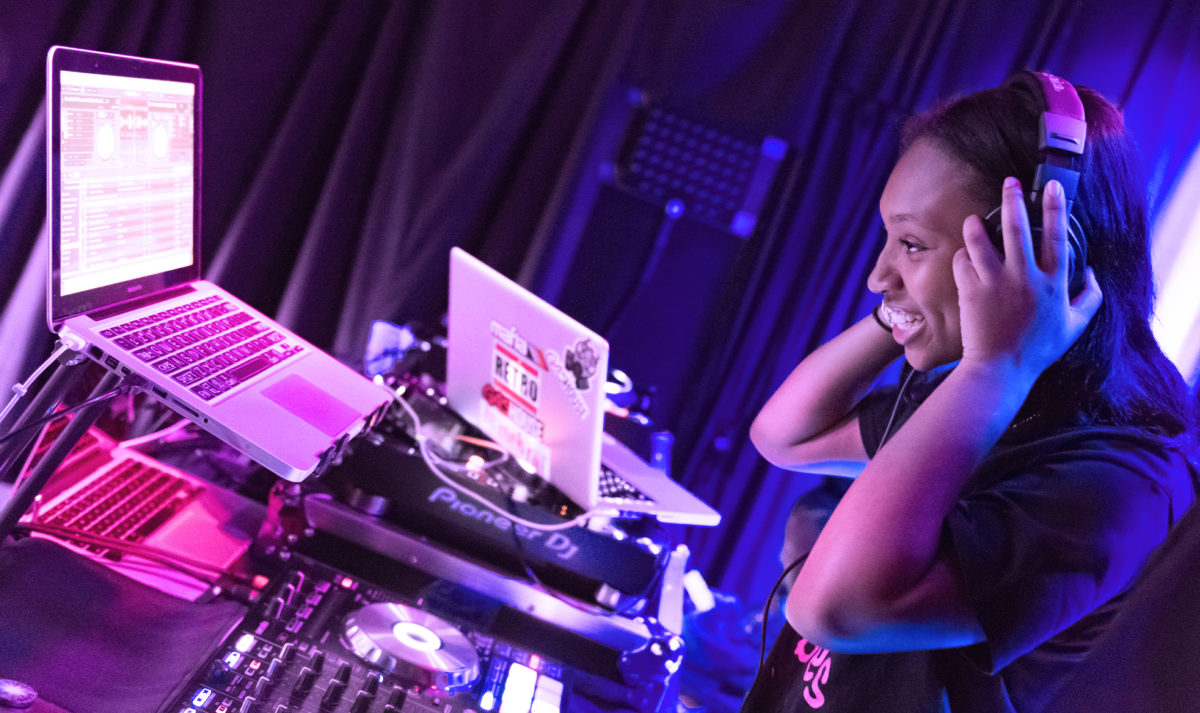
What are the new challenges that you’re seeing the young women you work with go through nowadays, maybe stuff that’s changed in the music industry since you were first getting into this space?
I actually think that we’re in a space with technology now where it’s helping to change the narrative of who has access to producing music. Everything is literally at our fingertips and now the girls can control their creative space without having to feel uncomfortable – they can produce and record from the comfort of their own homes. That has actually been a huge plus for us as an organization. The downside – and it’s open to actually both genders – is that now the industry is flooded, and it’s hard to have your work stand out amongst the millions of beats and everything that is out there. But the technology and social media of today has been a positive thing in the fact that the girls can create their own space in the industry.
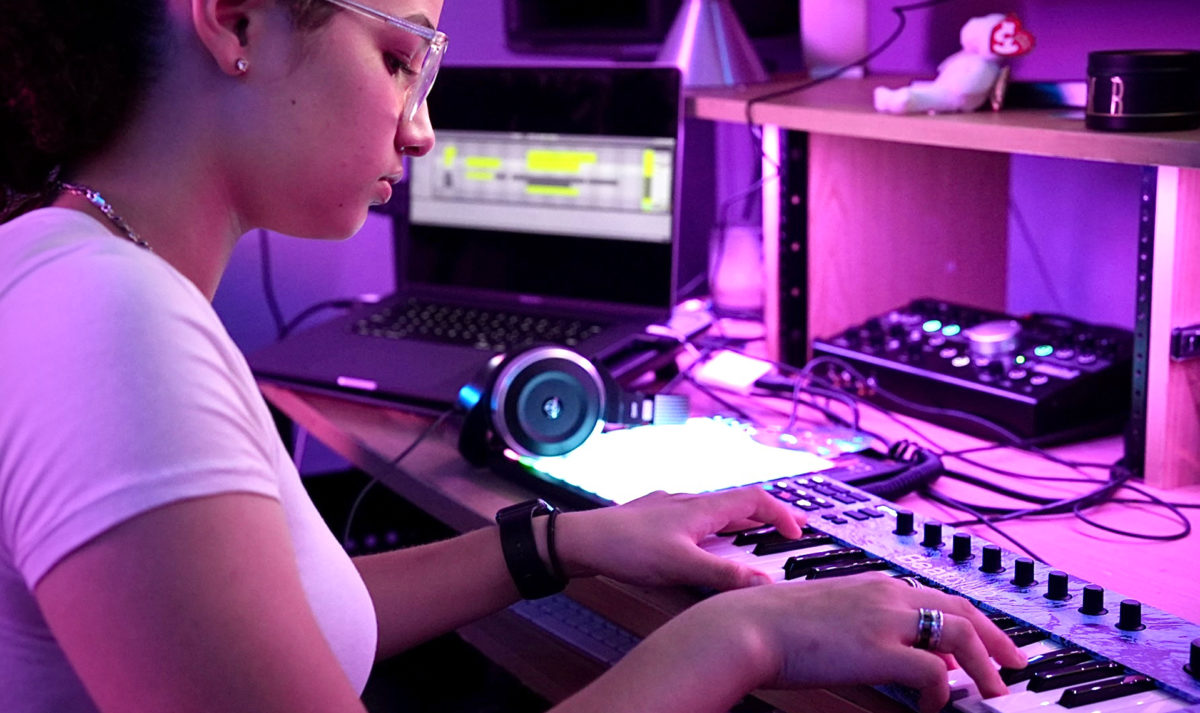
How has the last year impacted Girls Make Beats and what are you looking at for the future of the organization?
Due to COVID, it’s been such a challenging time for everybody. One positive thing that did come out of it is that we were able to break down a lot of geographical borders by working with girls virtually. Initially, Girls Make Beats started in Miami. Then we did a tour nationwide for two consecutive years, where we also did these week-long camps in Atlanta, New York, Las Vegas, Chicago, San Francisco, and LA. With the virtual programming, we’ve been able to work with girls internationally, in places like the UK and Brazil. The goal of the organization really is to be a global movement – we want to empower girls through music everywhere. When you think about this statistic of women representing less than 3% of music produers, that has such a profound impact on culture. Music impacts the way we interact with one another, what we wear, how we treat one another. If women aren’t fully represented in those fields, we’re not being represented as our true authentic selves. So, we want to empower girls everywhere all over the world to create their own music, put out what they want, and influence culture. We are expanding our Girls Make Beats Club model Powered by Spotify, which makes it possible for girls to start their own Girls Make Beats clubs in their schools, and then have access to industry professionals, master classes and workshops, and field trips. We actually took a group of our L.A. girls to Grammy president Harvey Mason, Jr.’s studio two weeks ago. So we’re rolling out the clubs in certain regions this school year. A huge thing we’re passionate about as well is working specifically with girls in underserved communities to give them access to that type of equipment they might not have access to otherwise.
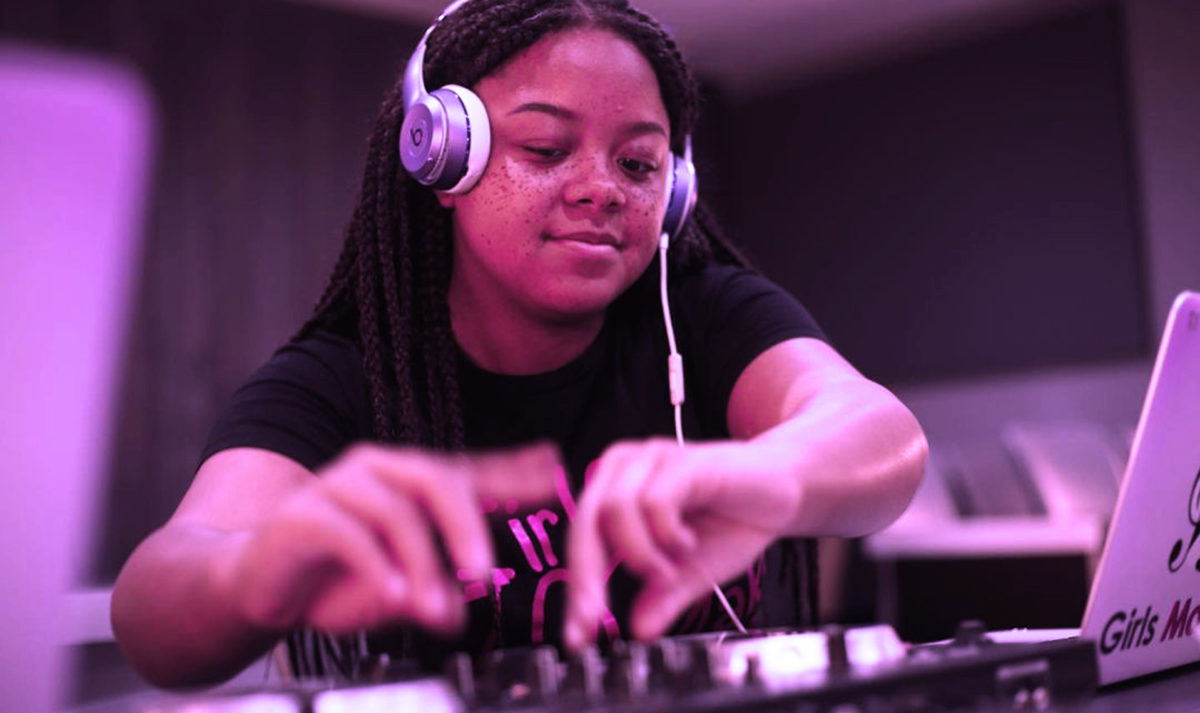
Is there anything you would like to see in the future of music technology?
What I would love to see as kind of a pivot for the entire music technology industry is more visibility of women in campaigns, and more marketing to girls and young women. Even thinking about the user interface design of certain products and who they appeal to could be really monumental in helping to change the narrative and the conversation.
Download the Community Drive sound pack here. The pack is free, but we encourage donations from those who are able to give.
Visit GirlsMakeBeats.org.
For more information on Girls Make Beats scholarships, made possible in part by NI, please visit girlsmakebeats.org/register.
Download our Community Drive pack from 2020 here.








